Description
Derived from the seeds of the Simmondsia chinensis botanical, the liquid commonly known as Jojoba Oil is not really an oil but rather a liquid wax ester. The name Jojoba originates from the word Hohowi, a name given to the seeds or the beans/nuts? ? by the O’odham, a Native American tribe that discovered the versatility of Jojoba seeds. The tribe created and used an anti-oxidant paste made from the nuts for skin and hair care purposes. For medicinal purposes, they used the nut paste or the oil to treat sores, wounds, and burns. Jojoba seeds were sometimes ground to make hot beverages, and in emergency situations or during hunts and raids, the Jojoba nut was eaten for survival.
Pregnant women believed that consuming the seeds would ease childbirth. The nut is comprised of 50% wax, which is generally not easily digested, thus it would pass through the intestinal tract of humans unaffected, functioning as a laxative.
In the 18th century, the indigenous peoples softened the Jojoba seeds by heating them and then, using a mortar and pestle, they ground the seeds into a buttery salve that was meant to be applied as a cosmetic ingredient to the skin and hair as an ointment and a conditioning agent. This salve also functioned as a softener and preservative for animal hides.
Before the widespread use of Jojoba Oil, sperm whale oil products were more pronounced in cosmetic applications; however, when whale hunting became illegal in the 1970s, sperm whale products and the other animal waxes that were used were being banned from being imported. They were replaced with Jojoba Oil products, as it was discovered that Jojoba Oil was similar to its predecessor in terms of providing moisture for all skin types, and in many other ways Jojoba Oil was superior.
Today, Jojoba Oil is largely known and used for its hypoallergenic cosmetic benefits. Comprised of nearly all the vitamins and minerals required to facilitate the growth of healthy skin and hair, it continues to prove its effectiveness on the most sensitive of skin. Jojoba Oil has demonstrated countless advantages such as its ability to hydrate while cleansing and controlling oil production, its ability to improve the look and feel of skin and hair, and its ability to reduce the look and feel of irritation and unwanted marks.
Jojoba Oil is derived from the cold pressing of its nuts/beans/seeds. After they are placed in an expeller, the nuts have their oil pressed out by the mechanism?s screw. In this method, the oil does not heat up, as heat can cause the loss of some of its beneficial properties, which would render the oil less effective. Unrefined Jojoba Carrier Oil is clear golden in color, liquid at room temperature, and its scent is slightly nutty. Refined Jojoba Oil is colorless and does not have an odor.
BENEFITS OF USING JOJOBA OIL
The main chemical constituents of Jojoba Carrier Oil are: Gadoleic Acid (Eicosenoic Acid), Erucic Acid, Oleic Acid, Palmitic Acid, Palmitoleic Acid, Stearic Acid, Behenic Acid, Vitamin E, and Vitamin B Complex.
GADOLEIC ACID (EICOSENOIC ACID) is known to:
have emollient properties
be non-comedogenic (does not block the skin?s pores)
be readily absorbed by the skin
balance the oil in the skin, making it less oily
ERUCIC ACID is known to:
be a natural lubricant for skin and hair
have non-greasy emollient properties
provide oxidative stability
have a silky texture
be an effective natural alternative to silicone in skin care products
OLEIC ACID is known to:
maintain the softness, suppleness, and radiance of skin and hair
stimulate the growth of thicker, longer and stronger hair
reduce the appearance of aging, such as premature wrinkles and fine lines
eliminate dandruff and thereby support hair growth
boost immunity
exhibit anti-oxidant properties
prevent joint inflammation, stiffness, and pain
PALMITIC ACID is known to:
have emollient properties
soften hair without leaving a greasy or sticky residue
be the most common saturated fatty acid
have antioxidant properties
PALMITOLEIC ACID is known to:
delay the appearance of premature aging
moisturize and tighten the skin
promote the growth of shiny hair
enhance the brightness of the complexion
boost the growth of healthy-looking nails
enhance skin elasticity to prevent symptoms of premature aging, such as wrinkles
STEARIC ACID is known to:
have cleansing properties that purge dirt, sweat and excess sebum from hair and skin
be an ideal emulsifying agent that binds water and oil
help products remain potent when stored for long periods of time
condition and protect hair from damage without diminishing luster or making it feel heavy
have exceptional cleansing properties
soften skin
BEHENIC ACID is known to:
lubricate and soothe skin
have emollient properties that restore skin’s natural oils
and improve overall levels of hydration
condition and smooth out hair follicles
be a thickening agent and surfactant,
opacify clear liquid solutions
VITAMIN E is known to:
have antioxidant properties that slow the look of aging and boost circulation
repair scarred and blemished skin
prevent moisture loss from skin and hair
offer soothing relief to skin that has been burned
deeply cleanse pores and balance oil production
VITAMIN B COMPLEX is known to:
prevent the signs of aging, such as wrinkles and fine lines
improve skin?s moisture retaining ability
maintain hair?s texture, color, and strength
regulate skin?s pigment production and thus prevent hyperpigmentation
promote the faster healing of wounds
Used topically, Jojoba Oil acts as a non-comedogenic, fast-absorbing yet long-lasting emollient that gently moisturizes, soothes, nourishes, and softens skin without leaving a greasy residue. It cleanses skin to prevent the growth of harmful bacteria and to promote the growth of new skin that is clear, cleansed, healthy, and supple. Due to a chemical composition that closely resembles the sebum found in human skin, Jojoba Oil is readily accepted and endured by skin. Jojoba Oil can balance skin?s oil production to reduce the effects of acne by eliminating excess natural oils in the pores. By creating a moisturizing and protective barrier on the skin, it guards against the harsh effects of the natural elements. Used on nails, Jojoba Oil strengthens and hydrates the cuticles while preventing infections from forming on the nail beds.
Used in hair, Jojoba Carrier Oil can rejuvenate and promote its growth. It helps reduce oiliness on the scalp by regulating the production of sebum. Hair that is dry and frizzy can benefit from Jojoba Oil?s conditioning properties, as they make hair more manageable and free from knots. When applied to damp hair, Jojoba Oil coats the hair shaft in its liquid wax and prevents it from drying by sealing in the moisture. The anti-bacterial and anti-fungal properties of Jojoba Oil eliminate dandruff and repair any damage such as breakage, leaving a cooling sensation on the scalp. This overall fortifying effect on hair encourages it to grow healthier faster, making it appear to be thicker and more lustrous.
Used medicinally, Jojoba Oil?s antiseptic and disinfectant properties can eliminate harmful bacteria on the skin. Simultaneously, it soothes inflammation, wounds, itching, dryness, and redness caused by skin conditions such as chaffing, chapping, burns, eczema, fungal infections, and psoriasis. On acne-prone skin, it functions as a deep cleaning agent that clears blocked pores and soothes irritated skin with its anti-inflammatory properties.
As illustrated, Jojoba Carrier Oil is reputed to have many therapeutic properties. The following highlights its many benefits and the kinds of activity it is believed to show:
COSMETIC: Non-Comedogenic, Emollient, Protectively Hydrating, Lubricating, Cooling, Soothing, Antioxidant, Softening, Strengthening, Stimulating, Anti-Inflammatory, Antibacterial
MEDICINAL: Antiseptic, Antifungal, Analgesic, Anti-inflammatory, Astringent, Stimulant, Tonic
1. Deeply-Hydrating. It is lighter than other face oils and easily absorbed into skin. It deeply penetrates to soothe and soften while providing an excellent moisturizing effect and adding a healthy glow.
2. Long-Lasting Moisturization. It doesn?t evaporate like water-based moisturizers, which is very important when your skin is exposed to the environment. Studies have shown that jojoba oil provides a substantial long-acting layer of moisture.
3. Nutritious for Skin. Jojoba is full of nutrients like Vitamin E and B, as well as antioxidants and minerals like chromium, copper, and zinc, which all nourish and protect skin. Organic, cold-pressed, jojoba oil has the highest level of antioxidants and nutrients.
4. Anti?Aging. Because it is the perfect moisturizer, Jojoba can help slow down the appearance of aging, and help to fade fine lines and wrinkles. In dermatological tests, it was shown that jojoba oil increases the skin’s suppleness and the effect was still present as time passed. Tests also showed continued use of Jojoba oil resulted in reducing superficial facial lines.
5. Non-Acnegenic. Because Jojoba oil is very similar to human skin oils, its use can trick the skin into thinking it has produced enough oil and thus balance oil production, without promoting acne or other skin problems. Jojoba also naturally deters microbes, helping to prevent the growth of bacteria on skin.
6. Easy, Not Greasy. Because Jojoba oil is very similar to our own skin oils, it immediately penetrates skin and smoothes easily, helping to promote healthy, glowing skin without clogging pores or leaving a greasy residue.
7. Soothes Sunburn. Jojoba oils hydrating action soothes sunburn and helps reduce the chances of peeling.
8. Gentle & Non-Allergenic. Jojoba oil is recommended for people with sensitive skin (including psoriasis and eczema) because of its gentle nature. Applying Jojoba oil to compromised skin can help reduce flare-ups.
9. Soothes Dry Skin. Jojoba oil has anti-inflammatory properties which help to tame chaffing and chapping, reduce redness caused by drying, ease the effects of eczema and rosacea, and keep skin calm and comfortable. The Vitamin E and B-complex vitamins in the Jojoba oil help in skin repair and damage control.
10. Anti?Microbial. Jojoba oil naturally deters microbes, helping to prevent the growth of bacteria on skin. This property makes it useful for those with acne, and also provides an added wound-healing benefit. Bonus: Jojoba oil acts as a natural preservative.
USES OF JOJOBA OIL
The uses of Jojoba Carrier Oil are abundant, ranging from medicinal to cosmetic. Its many forms include oils, gels, lotions, soaps, shampoos, sprays, and candle making.
Jojoba Oil can be used on skin, hair, and nails to cleanse, condition, moisturize, and eliminate or prevent fungal infections. To create a moisturizing face mask, a few drops of Jojoba Oil can be added to a facial clay and applied a few times a week. Applying Jojoba Oil to areas of skin affected by acne will help reduce the appearance and outbreak of pimples and blackheads by regulating sebum production and balancing skin?s natural moisture. For a moisturizer, Jojoba Oil can be mixed with a few drops of a soothing essential oil like Lavender then applied to the body after a bath or a shower for long-lasting hydration. This will leave skin looking and feeling clean, healthy, firm, and youthful without a greasy residue. For a soothing massage oil blend, Jojoba Oil can be used to dilute calming essential oils such as Frankincense or Bergamot. To make a natural makeup remover, a few drops of Jojoba Oil can be added to a cotton ball and wiped across the face with gentle pressure to remove foundation, blush, eye makeup, and lip color. To moisturize and refresh the appearance of dry cuticles and hangnails, Jojoba Oil can be rubbed into the skin around the nails as a cuticle cream.
To clean and moisturize dry hair, a few drops of gently heated Jojoba Oil can be massaged into damp hair to soak into and condition the hair for a few minutes before rinsing it out thoroughly with shampoo. To fix the problem of frizzy hair, a few drops of Jojoba Oil can be massaged into the affected areas of dry hair, avoiding the scalp. For an oil that prevents hair loss and increases hair?s sheen, Rosemary Oil can be added to Jojoba Oil before being applied to the scalp and hair.
For a moisturizing layer of protection on the skin when outdoors, Jojoba Oil can be applied to the face and any other exposed skin to guard it against any harshness from the elements. It can also be applied to the face as a serum and left on overnight for softer, smoother skin. Mixed with an equal quantity of beeswax and applied to the lips, Jojoba Oil can replace traditional lip balms that most likely have petroleum jelly bases. By locking in moisture with its waxy barrier, it protects lips against the drying and damaging effects of the cold and the wind, keeping them looking and feeling supple. For lasting moisture and to repair chapped and cracked areas of skin, Jojoba Oil can be applied after cleansing the affected areas with warm water and patting them dry. The oil will soften calloused areas while preventing bacterial infections from forming in any areas with split skin.
Used medicinally, Jojoba Oil can address fungal infections such as toenail fungus and Athlete?s Foot. When applied to wounds and sunburns, it can facilitate the healing process by effectively eliminating bacteria and reducing inflammation. Those with arthritis and joint pain can use Jojoba Oil blended with pain-relieving essential oils to ease discomfort, as it rapidly penetrates the skin to carry the analgesic properties of the essential oils to the affected areas.

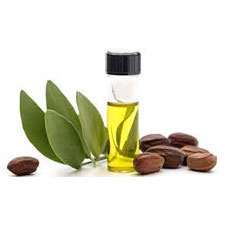
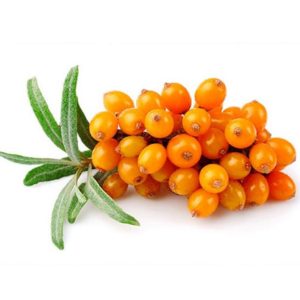
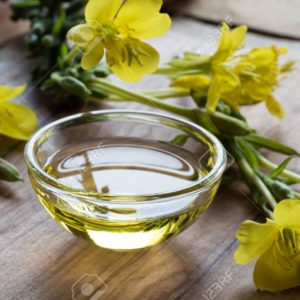
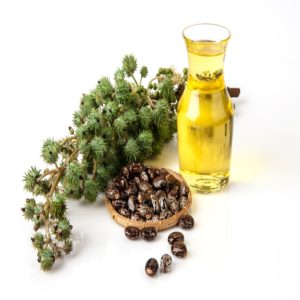
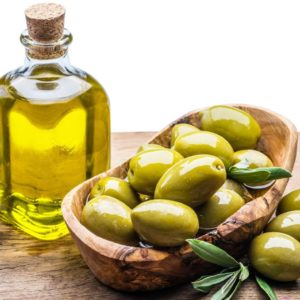
Reviews
There are no reviews yet.